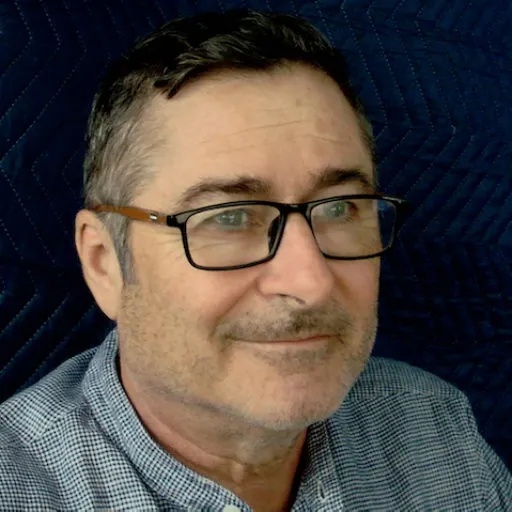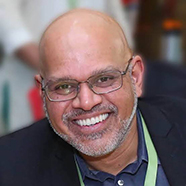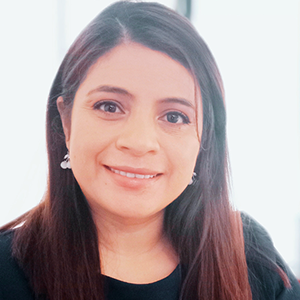Keynote & Featured Speakers
Tuesday, March 26, 2024
Keynote: Jon Dron, Athabasca University
The Intertwingled Teacher
Abstract: All of us are learning technologists, teaching others through the use of technologies, be they language, white boards, and pencils or computers, apps, and networks. We are all part of a vast, technology-mediated cognitive web in which a cast of millions – in formal education including teachers such as textbook authors, media producers, architects, software designers, system administrators, and, above all, learners themselves – co-participates in creating an endless, richly entwined tapestry of learning. This tapestry spreads far beyond formal acts of teaching, far back in time, and far into the future, weaving in and helping to form not just the learning of individuals but the collective intelligence of the whole human race. Everyone’s learning journey both differs from and is intertwingled with that of everyone else. Education is an overwhelmingly complex and unpredictable technological system in which coarse patterns and average effects can be found but, except in the most rigid, invariant, minor details, of which individual predictions cannot be accurately made. No learner is average, and outcomes are always greater than what is intended. The beat of a butterfly’s wing in Timbuktu can radically affect the experience of a learner in Toronto. A slight variation in tone of voice can make all the difference between a life-transforming learning experience and a lifelong aversion to a subject. Beautifully crafted, research-informed teaching methods can be completely ineffective, while poor teaching, or even the absence of it, can result in profoundly affective learning. For all our efforts to understand and control it, education as a technological process is far closer to art than to engineering. What we do is usually far less significant than the idiosyncratic way that we do it, and how much we care for the subject, our students, and our craft is often far more important than the pedagogical methods we use. In this talk I will discuss what all of this implies for how we should teach, for how we understand teaching, and for how we research the massively intertwingled processes and tools of teaching. Along the way I will explain why there is no significant difference between measured outcomes of online or in-person learning, the futility of teaching to learning styles, the reason for the 2-sigma advantage of personal tuition, the surprising commonalities between behaviourist, cognitivist, constructivist models of learning and teaching, the nature of literacies, and the failure of reductive research methods in education. It will be fun

Bio: Professor Jon Dron is a member of the Technology Enhanced Knowledge Research Institute, and Associate Dean, Learning & Assessment in the Faculty of Science and Technology at Athabasca University. Jon has received both national and local awards for his teaching, is author of various award-winning research papers and is a regular keynote speaker at international conferences in fields as diverse as education, learning technologies, information science and programming. Jon has a first degree in philosophy, a masters degree in information systems, a post-graduate certificate in higher education and a PhD in learning technologies. Apart from his work in education, he has had careers in technology management, programming, and marketing, as well as over ten years as a professional singer. He is the author of Teaching Crowds: Learning and Social Media (2014, with Terry Anderson), and Control & Constraint in E-Learning: Choosing When to Choose (2007). His latest book, published in 2023, is How Education Works: Teaching, Technology, & Technique. He lives in beautiful Vancouver where, when he is not spending time with his wife, children and grandchildren, he sails, cycles, writes, sings, and plays many musical instruments, mostly quite badly. You can find out more about him at his personal website: https://jondron.ca
Wednesday, March 27, 2024
Keynote: Punya Mishra, Arizona State Univ.
If AI is the teacher, what happens to TPACK?
Abstract: What does the advent of Generative AI (GenAI) technologies such as ChatGPT mean for teacher knowledge? In this presentation, Punya Mishra will seek to address this question through a discussion of why GenAI tools are different from other digital technologies that have come in the past. Like other digital technologies GenAI is protean, opaque, and unstable. In addition, it has the unique ability to create original and surprising content, (which can sometimes be unreliable). He will argue that GenAI is not just a tool, but a new kind of intelligence (a psychological other) that interacts with humans and can influence the learning ecosystem across multiple levels. It is truly a “social medium” and is best understood as, an always available, eager to please “smart drunk intern.” These unique characteristics lead it to being a “relational tool” that will be deeply embedded into social contexts, both shaping and affecting learning and culture, in the short and long term. Effective teaching requires a new form of TPACK, one that integrates this evolving context into its very framing.
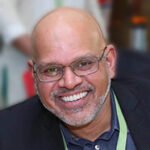 Bio: Dr. Punya Mishra is Associate Dean of Scholarship & Innovation and Professor in the Mary Lou Fulton Teachers College at Arizona State University. He also has an affiliate appointment in ASU’s Design School. As associate dean he leads a range of initiatives that provide a future-forward, equity driven, approach to educational research. He is internationally recognized for his work in educational technology; the role of creativity and aesthetics in learning; and the application of design-based approaches to educational innovation. He has received $9.5 million in grants; published over 200 articles and edited 5 books. With over 50,000 citations of his research, he is ranked among the top 2% of scientists worldwide and the top 100 scholars with the biggest influence on educational practice and policy. A TED-Ed educator, he co-hosts the award-winning Silver Lining for Learning webinar as well as the Value Laden and Learning Futures podcasts. Dr. Mishra is an award-winning instructor who has taught courses at undergraduate, masters and doctoral levels in the areas of educational technology, educational psychology, design, and creativity. He is also an engaging public speaker, and an accomplished visual artist and poet. You can learn more about him by going to https://punyamishra.com/
Bio: Dr. Punya Mishra is Associate Dean of Scholarship & Innovation and Professor in the Mary Lou Fulton Teachers College at Arizona State University. He also has an affiliate appointment in ASU’s Design School. As associate dean he leads a range of initiatives that provide a future-forward, equity driven, approach to educational research. He is internationally recognized for his work in educational technology; the role of creativity and aesthetics in learning; and the application of design-based approaches to educational innovation. He has received $9.5 million in grants; published over 200 articles and edited 5 books. With over 50,000 citations of his research, he is ranked among the top 2% of scientists worldwide and the top 100 scholars with the biggest influence on educational practice and policy. A TED-Ed educator, he co-hosts the award-winning Silver Lining for Learning webinar as well as the Value Laden and Learning Futures podcasts. Dr. Mishra is an award-winning instructor who has taught courses at undergraduate, masters and doctoral levels in the areas of educational technology, educational psychology, design, and creativity. He is also an engaging public speaker, and an accomplished visual artist and poet. You can learn more about him by going to https://punyamishra.com/
Thursday, March 28, 2024
Keynote: Anna Iarotska, robo wunderkind
From Inspiration to Impact: The Robo Wunderkind Journey in Revolutionizing STEM Education
 Abstract: In this keynote, Anna Iarotska will embark on the inspiring journey of Robo Wunderkind, a company she co-founded and is leading as a CEO, from its inception to its pivotal role in transforming STEM education. Robo Wunderkind was born because of frustration with the traditional educational system’s inadequacies in sparking interest in STEM among young learners. Their story navigates through the initial stages of development within a hardware accelerator in China, to the successful launch of their Kickstarter campaign at TechCrunch Disrupt in San Franciso. This journey was not just about creating innovative hardware but also about a vision to revolutionize STEM education.
Abstract: In this keynote, Anna Iarotska will embark on the inspiring journey of Robo Wunderkind, a company she co-founded and is leading as a CEO, from its inception to its pivotal role in transforming STEM education. Robo Wunderkind was born because of frustration with the traditional educational system’s inadequacies in sparking interest in STEM among young learners. Their story navigates through the initial stages of development within a hardware accelerator in China, to the successful launch of their Kickstarter campaign at TechCrunch Disrupt in San Franciso. This journey was not just about creating innovative hardware but also about a vision to revolutionize STEM education.
Join Anna Iarotska as she will share the challenges faced, lessons learned, and the successes achieved in their quest to make a significant impact on schools worldwide. This keynote will not only highlight their journey but also reflect on the transformative power of technology in education, illustrating how innovation can bridge gaps and foster a lasting interest in STEM fields among the next generation.
With its hands-on robotics kits, intuitive coding applications, and curriculum that helps integrate STEM into Math and Reading, Robo Wunderkind has become a staple in over 2000 educational institutions worldwide. Launched initially in Vienna, the startup has seen a remarkable expansion in the US in the past two years and now impacts over 20,000 students, 70% of whom are from Title 1 schools, reflecting Anna’s commitment to bridging the educational equity gap.
Now based in Washington, DC, to spearhead Robo Wunderkind’s growth in the American market, Anna has emerged as a leading voice in digital education trends. Her influence and contributions to educational technology have earned her accolades, such as being named among the top 100 Edtech influencers by Edtech Digest and receiving the prestigious Spark award – The German Digital Prize for “Female Founder”.
Friday, March 29, 2024
Keynote: Adriani Coleman
Building a Digital Learning Landscape: Analyzing the SWOT Factors of Technological Integration in Teaching and Learning in Belize
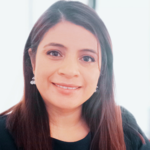 Abstract: This keynote provides a comprehensive analysis of the SWOT (Strengths, Weaknesses, Opportunities, and Threats) factors associated with the integration of technology in teaching and learning in Belize’s educational landscape. It examines the current state of technological integration in Belizean classrooms, highlighting initiatives and policies that promote its implementation. The analysis encompasses the strengths of technology integration, such as enhanced collaboration and personalized learning experiences, as well as the weaknesses, such as infrastructure gaps and limited digital literacy skills. Opportunities for growth and improvement, such as expanding e-learning platforms and integrating emerging technologies, are explored, along with threats such as budget constraints and resistance to change. Through this analysis, the paper provides insights and recommendations to policymakers, educators, and stakeholders, emphasizing the importance of addressing weaknesses and threats while capitalizing on strengths and opportunities to create an effective and inclusive digital learning landscape in Belize.
Abstract: This keynote provides a comprehensive analysis of the SWOT (Strengths, Weaknesses, Opportunities, and Threats) factors associated with the integration of technology in teaching and learning in Belize’s educational landscape. It examines the current state of technological integration in Belizean classrooms, highlighting initiatives and policies that promote its implementation. The analysis encompasses the strengths of technology integration, such as enhanced collaboration and personalized learning experiences, as well as the weaknesses, such as infrastructure gaps and limited digital literacy skills. Opportunities for growth and improvement, such as expanding e-learning platforms and integrating emerging technologies, are explored, along with threats such as budget constraints and resistance to change. Through this analysis, the paper provides insights and recommendations to policymakers, educators, and stakeholders, emphasizing the importance of addressing weaknesses and threats while capitalizing on strengths and opportunities to create an effective and inclusive digital learning landscape in Belize.
Bio: Adriani Coleman, a visionary educator and innovator, has dedicated her life to transforming education through compassion, inclusion, and the integration of technology. With a profound understanding of the diverse needs of students and a passion for leveraging technological advancements, Adriani has made significant contributions to the field of educational technology, creating a lasting impact on teaching and learning. Born and raised in Belize City, Belize, Adriani developed a deep appreciation for the power of education and its potential to shape lives. Building on this foundation, she completed a Master of Education (M.Ed) degree in Innovation in Teaching & Learning at the esteemed University of South Wales in 2020. This advanced degree along with sixteen years of teaching experience provided her with a comprehensive understanding of integrating innovative teaching methodologies and technologies into educational practices.
Driven by a desire to explore the intersection of artificial intelligence and educational technology, Adriani embarked on a groundbreaking journey, pursuing an Ed.D (Doctorate in Education) in Artificial Intelligence in Educational Technology. With 18+ years of teaching across various educational institutions, including both high school and primary school levels, Adriani has gained invaluable insights into diverse educational environments. In 2020, Adriani founded DLPS (Digital Learning & Pedagogical Solutions), a consultancy firm dedicated to empowering schools and businesses in developing and enhancing their digital learning programs. Adriani’’s remarkable journey reflects a deep-rooted commitment to compassion, inclusion, and technological innovation in education. Her tireless efforts to create inclusive learning environments and her groundbreaking work in educational technology and artificial intelligence have left an indelible mark on the field. As an advocate for change and a visionary in the realm of education, Adriani continues to inspire educators and learners, transforming the landscape of teaching and learning for generations to come.
Invited Panel
Building Capacity for K-12 Computer Science Education Through Teacher Preparation
Moderator: Chrystalla Mouza, Dean of Education, College of Education, University of Illinois, Urbana-Champaign
Chrystalla Mouza is Dean of the College of Education at the University of Illinois at Urbana-Champaign. She previously served as director and Distinguished Professor of Teacher Education specializing in educational technology in the University of Delaware’s School of Education, and a professor of computer and information sciences in Delaware’s College of Engineering. Her current research focuses on computer science education, specifically teacher professional development and pre-service teacher preparation.
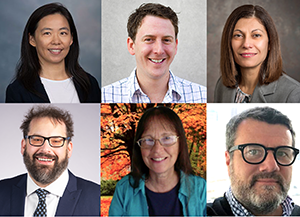 Panelists: Yin-Chan (Janet) Liao, Assistant Professor of Learning Technologies, Associate Director, Snap Inc. Center for Computing in Teacher Education, Georgia State University
Panelists: Yin-Chan (Janet) Liao, Assistant Professor of Learning Technologies, Associate Director, Snap Inc. Center for Computing in Teacher Education, Georgia State University
Janet is a teacher educator committed to empowering preK-12 pre-service and in-service teachers in integrating technology and computing into their teaching practices. Her research focuses on the interplay between teachers’ knowledge, beliefs, and practices, with an emphasis on contextualized professional development. She is part of the faculty team at Georgia State University’s Snap Inc. Center for Computers in Teacher Education, where their mission centers on the integration of computing across disciplines, equipping teachers with valuable tools and students with essential skills. Janet is dedicated to equitable computing education and enriching the educational experiences of both teachers and students.
Brendan Calandra, Professor and Chair, Department of Learning Sciences, Senior Associate Director, Snap Inc. Center for Computing in Teacher Education, Georgia State University
Brendan Calandra is a professor and chair of the Learning Sciences Department in the College of Education & Human Development at Georgia State University. His research and teaching focus on digital media, learning, and professional development. His projects most often involve using rich and immersive technologies to help novice teachers learn from practice teaching, and providing authentic, technology-rich learning experiences for underserved and marginalized youth.
Mike Karlin, Assistant Professor, STEM Education, Director, Snap Inc. Institute for Technology & Education, California State University, Dominguez Hills
Mike is a former pK-12 STEM teacher and education technology coach who currently supports future teachers at CSUDH through a focus on equitable, justice-oriented STEM integration. Mike’s research centers around broadening participation in STEM and computer science, as well as leveraging instructional design and education technology to increase access and equity. Finally, Mike serves as the director of the Snap Inc. Institute for Technology and Education (SITE) at CSUDH. SITE’s mission centers joy within computer science education while also challenging the ways technology perpetuates harm and systems of oppression.
Johannes Strobel, Associate Dean of Research & Professor, STEM Education, Incoming Executive Director, Hopper-Dean Center of Excellence for K-12 Computer Science Education , University of Texas, El Paso
Johannes is an Engineering & Computer Science education researcher focusing on integrated STEM competencies and empathy in technical fields. His degrees in philosophy, information science, and learning technologies propelled his interest in humanistic STEM+C and supporting students moving from passive consumers to active creators of the human-made world around them. His interest in computer science education is the intersection of curriculum spaces, policy and teachers’ adoption and expertise development. Johannes is the incoming executive director, Hopper-Dean Center of Excellence for K-12 Computer Science Education, University of Texas, El Paso. Its mission is to advance K-12 CS Education in the Paso del Norte region.
Dianne O’Grady-Cunniff, Director, Maryland Center for Computing Education, University System of Maryland
Dianne is the Director of the Maryland Center for Computing Education at the University System of Maryland that was created to support computer science education statewide. Her degrees in computer science, statistics, and instructional media along with work experience as a programmer, network administrator, consultant, and trainer for industry combined with years of teaching computer science at the university and K-12 levels have given her a deep understanding of the breadth of computer science. She has developed curriculum and training for computer science classes that have broad appeal with a focus on broadening participation and served on writing teams to develop the computer science framework, national standards, and teacher certification. Computer Science Education is her passion and she believes that every child should have the opportunity to create with technology.
